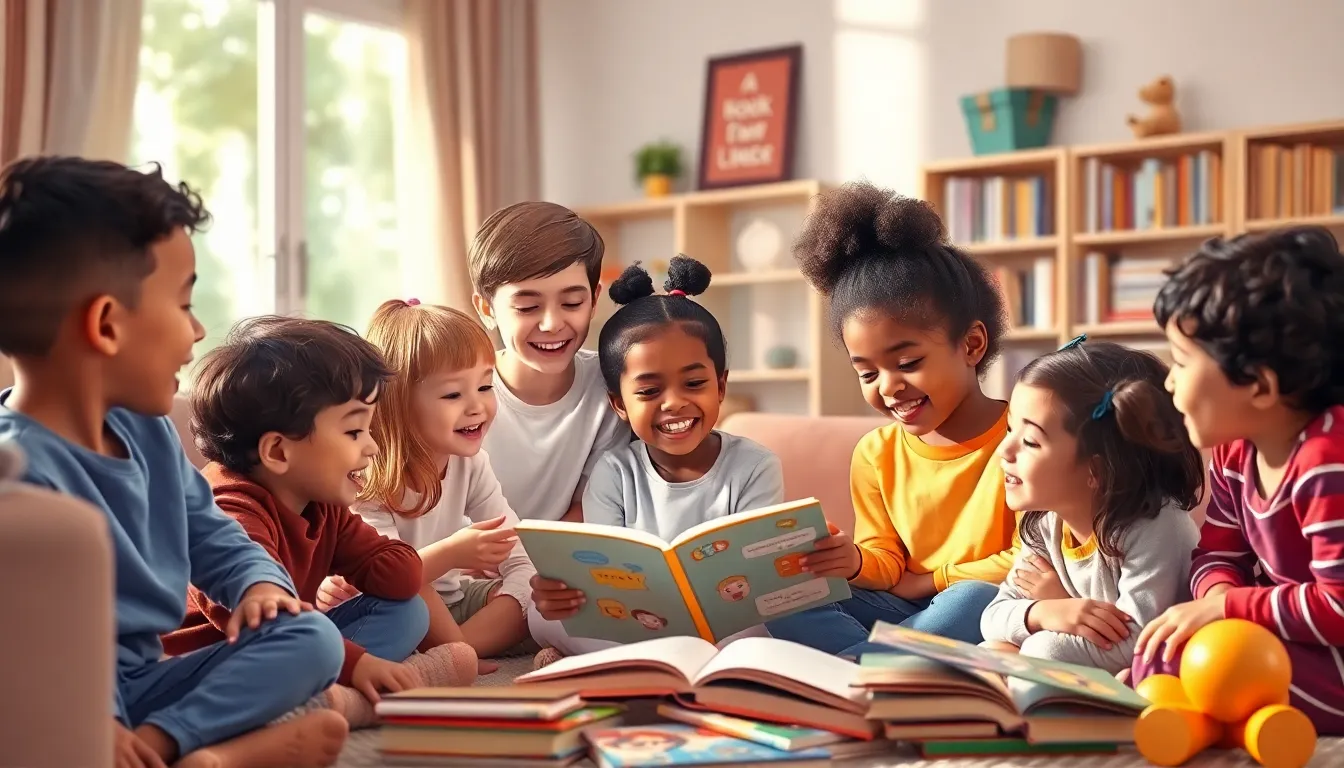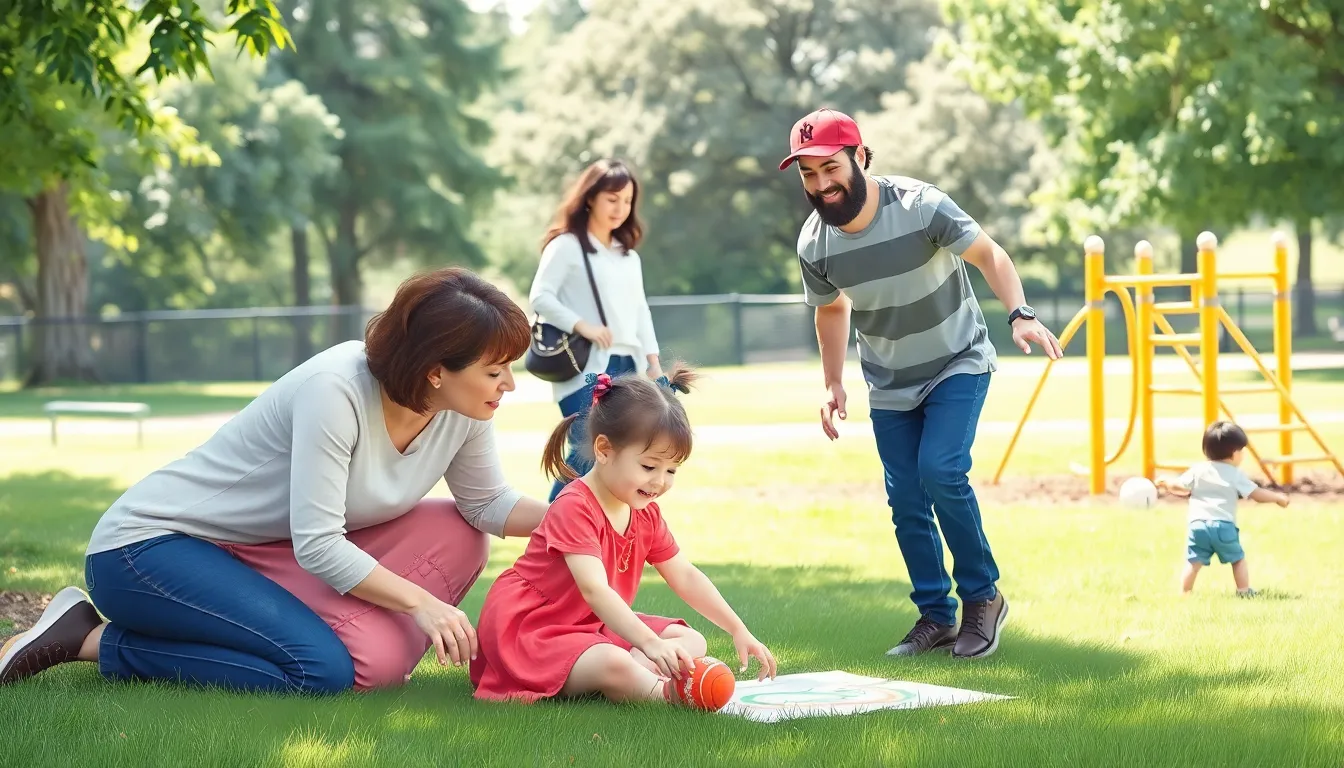Parenting styles can feel like a game of chess where every move counts. With so many strategies available, it’s easy to get lost in the maze of methods. Understanding the various AP Psych parenting styles not only helps parents navigate the tricky waters of child-rearing but also equips them with the tools to raise emotionally intelligent and resilient kids.
Table of Contents
ToggleOverview of AP Psych Parenting Styles
AP Psych identifies four main parenting styles: authoritative, authoritarian, permissive, and neglectful. Each style reflects distinct approaches and influences children’s development.
Authoritative parenting balances responsiveness with high expectations. Parents offer support while maintaining clear boundaries, fostering independence and emotional intelligence. Research shows that children raised in this environment often display better social skills and self-esteem.
Authoritarian parenting, in contrast, emphasizes obedience and discipline over emotional warmth. Parents set strict rules without much flexibility, leading to less open communication. Children typically comply but may struggle with self-esteem and social interactions.
Permissive parents prioritize warmth and nurturing while avoiding strict boundaries. This hands-off approach encourages creativity but may hinder children’s understanding of limits. Kids often exhibit impulsive behavior due to the lack of structure.
Neglectful parenting involves a lack of emotional involvement and supervision. Parents may be emotionally uninvolved or physically absent. Children raised in these environments often face challenges with attachment and emotional regulation.
Understanding these styles equips parents to choose strategies that best support their children’s developmental needs. Insights from this framework inform effective parenting choices, encouraging parents to find a balance that enhances their children’s growth and resilience.
Authoritative Parenting

Authoritative parenting stands out as a balanced approach, combining warmth with structure. This style emphasizes setting reasonable expectations while remaining responsive to children’s needs.
Characteristics of Authoritative Parenting
Clear communication defines authoritative parenting. Parents encourage open dialogues, allowing children to express thoughts and feelings. Flexibility plays a crucial role, enabling parents to adapt their rules as children grow. Consistency in discipline fosters a sense of security, while support nurtures autonomy. Parents practicing this style often set high yet achievable standards, which motivates children to reach their potential. Empathy underpins interactions, helping children develop emotional intelligence.
Effects on Child Development
Authoritative parenting significantly influences child development. Children raised in this environment show higher self-esteem and confidence. Independence flourishes, as they learn to make decisions and solve problems. Stronger emotional regulation emerges, equipping them to handle stress. Academic performance often improves due to a supportive atmosphere prioritizing education. These children typically develop better social skills, leading to healthier relationships. Resilience is another critical outcome, preparing them for life’s challenges.
Authoritarian Parenting
Authoritarian parenting emphasizes strict discipline and high expectations. This style prioritizes obedience and control over flexibility and warmth.
Key Traits of Authoritarian Parenting
Key traits include rigid rules, low responsiveness, and limited emotional support. Parents employing this style often demand compliance, leaving little room for negotiation. Communication tends to be one-sided, with parents directing rather than engaging. Punishment frequently replaces positive reinforcement, creating an environment of fear rather than trust. These traits promote a structured approach, but they often hinder emotional connection between parent and child.
Impact on Behavioral Outcomes
Children raised under authoritarian parenting may exhibit various behavioral outcomes. They often show lower self-esteem linked to constant criticism and lack of acknowledgement. Additionally, these children might struggle with anxiety due to high pressure and expectations. Studies reveal that they tend to have poor social skills, as limited communication fosters isolation. Academic performance can also suffer, with some children rebelling against authoritarian control or developing compliance without true understanding.
Permissive Parenting
Permissive parenting emphasizes warmth and child-centered interactions. Parents adopting this style often exercise low demands and high responsiveness, allowing children considerable freedom.
Defining Features of Permissive Parenting
Characteristics include lenient discipline and minimal restrictions. Parents tend to prioritize their child’s happiness and avoid confrontation, thus fostering an environment of open expression. Children often enjoy extensive autonomy in decision-making and experience less control over their actions compared to other parenting styles. Lack of consistent boundaries can lead to challenges in instilling self-discipline. Emotional connections remain strong, but the absence of structure may impede children’s ability to navigate expectations in various contexts.
Long-Term Consequences for Children
Children raised under permissive parenting may struggle with impulsivity and issues regulating emotions. Research indicates such children often exhibit difficulties in applying self-control, leading to challenges in academic and social settings. Higher susceptibility to peer pressure may also occur, as they test limits more frequently. While they may enjoy creativity and self-expression, these children might experience lower academic performance. Cultivating resilience and responsibility often becomes more challenging without established guidelines and boundaries in their upbringing.
Uninvolved Parenting
Uninvolved parenting features minimal responsiveness and a lack of involvement. Parents often prioritize their own needs over their children’s, leading to a neglectful atmosphere.
Understanding Uninvolved Parenting
Uninvolved parenting, also known as neglectful parenting, lacks emotional engagement and supervision. Parents may provide basic necessities but often fail to offer guidance or support. This absence can stem from various factors, such as stress or personal issues. As a result, children might feel emotionally isolated, lacking the direction needed for healthy development.
Effects on Emotional and Social Development
Emotional and social development suffers significantly under uninvolved parenting. Children raised in this environment often struggle with attachment issues, inadequately forming relationships with peers and authority figures. Social skills typically decline, leading to difficulties in communication and cooperation. Additionally, these children may exhibit higher levels of anxiety, depression, and low self-esteem due to the lack of emotional support. Research indicates that uninvolved parenting contributes to deficits in emotional regulation, which affects long-term psychological well-being.
Understanding AP Psych parenting styles is crucial for navigating the challenges of raising children. By recognizing the distinct characteristics of authoritative, authoritarian, permissive, and neglectful parenting, caregivers can make informed decisions that support their children’s emotional and social development. Each style has its impact on a child’s growth and resilience.
Parents equipped with this knowledge can foster environments that encourage independence, emotional intelligence, and healthy communication. Ultimately, the goal is to create a nurturing atmosphere that allows children to thrive, preparing them to face life’s challenges with confidence and resilience.



